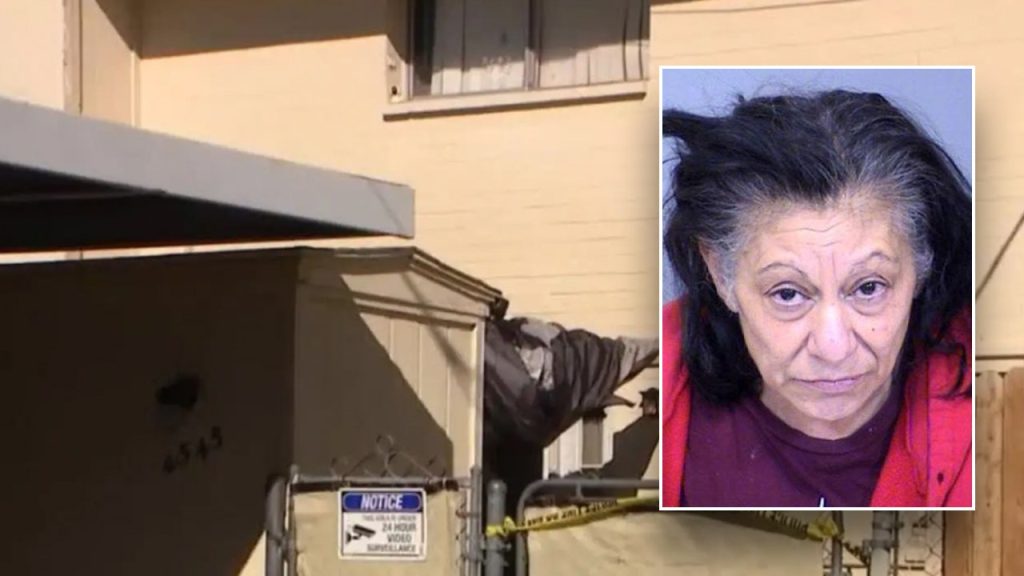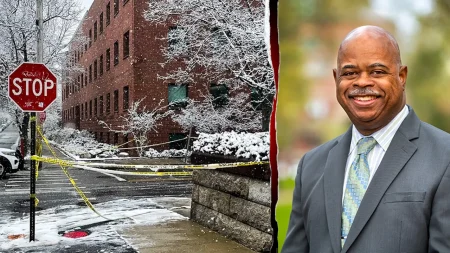Tragic Death of 13-Year-Old Girl with Special Needs Ruled Homicide
In a heartbreaking case that has shocked the Arizona community, the death of 13-year-old Melony Granados has been ruled a homicide by the Maricopa County Medical Examiner’s Office. Melony, who suffered from a rare form of epilepsy and cognitive impairments that left her functioning at the level of a 3-year-old, had been living under deplorable conditions in her grandmother’s home. The young girl’s story has raised serious questions about the care of vulnerable children with special needs and the systems designed to protect them. Her grandmother, Virginia Lujan, 55, who had been charged with child abuse and related offenses in February, died of natural causes while in custody at the Maricopa County Jail before potentially facing additional charges following the homicide ruling.
The tragic timeline began on January 20, when Lujan called 911 reporting that her granddaughter was unresponsive inside their Tempe townhouse. When officers arrived at the scene, they discovered the young girl lying on the living room floor with extensive bruising. Despite Lujan’s explanation that Melony had fallen down the stairs, the circumstances immediately raised suspicions among the responding officers. Melony was rushed to the hospital but tragically died the following day, leaving investigators to piece together the disturbing circumstances of her final days. The subsequent investigation would reveal conditions far worse than initially apparent, painting a picture of severe neglect and mistreatment that ultimately led to the homicide determination.
When police entered the Tempe townhouse, they described finding “filthy” living conditions that were wholly unsuitable for any child, let alone one with special needs. The home was filled with trash and insects, with generally unsanitary conditions throughout. However, the most disturbing discovery was a makeshift cage that had been fashioned from a bunk bed. Investigators found that baby gates and rails had been zip-tied to the frame, creating an enclosure where Melony was reportedly kept for extended periods. Perhaps most distressing was the presence of human waste inside this improvised cage, suggesting the young girl had been confined without access to proper bathroom facilities. These conditions, documented by prosecutors, painted a picture of extreme neglect that sharply contrasted with the level of care required for a child with Melony’s medical conditions.
Melony’s situation was made even more complex by the family dynamics at play. She was one of five children belonging to Jami Hodges, who is Lujan’s daughter. Reports indicate that Hodges had previously transferred custody of four of her children, including Melony, to Lujan. This arrangement, which was meant to provide stability for the children, instead appears to have placed Melony in a dangerous living situation without adequate oversight. Following the discovery of these conditions, Lujan was indicted in February on multiple charges including child abuse, evidence tampering, and contributing to the dependency of a child, according to the Maricopa County Attorney’s Office. The Tempe Police Department had been awaiting the medical examiner’s report before considering additional, potentially more serious charges against Lujan.
The medical examiner’s recent ruling that Melony’s death was a homicide adds a new layer of tragedy to an already heartbreaking case. While this determination would typically pave the way for additional criminal charges, Lujan’s death in custody has complicated matters from a legal perspective. She died while being held at the Maricopa County Jail, reportedly of natural causes, meaning she will never face trial or potential additional charges for her granddaughter’s death. This outcome leaves many questions unanswered and denies a complete legal resolution to the case, potentially leaving Melony’s family members and the broader community without the closure that might come from a full accounting of responsibility through the justice system.
Melony’s case highlights critical issues regarding the protection of vulnerable children, particularly those with special needs who require additional care and supervision. The systems that were supposed to protect Melony—from family custody arrangements to possible involvement from child protective services—appear to have failed her in fundamental ways. As communities across the country grapple with similar cases, Melony’s story serves as a painful reminder of the importance of proper oversight when vulnerable children are placed in new living situations. It raises questions about how authorities monitor the welfare of children with special needs and what additional protections might be necessary to prevent similar tragedies in the future. While legal proceedings against Lujan have ended with her death, the lessons from this devastating case should inform ongoing efforts to protect other children from suffering a similar fate.










